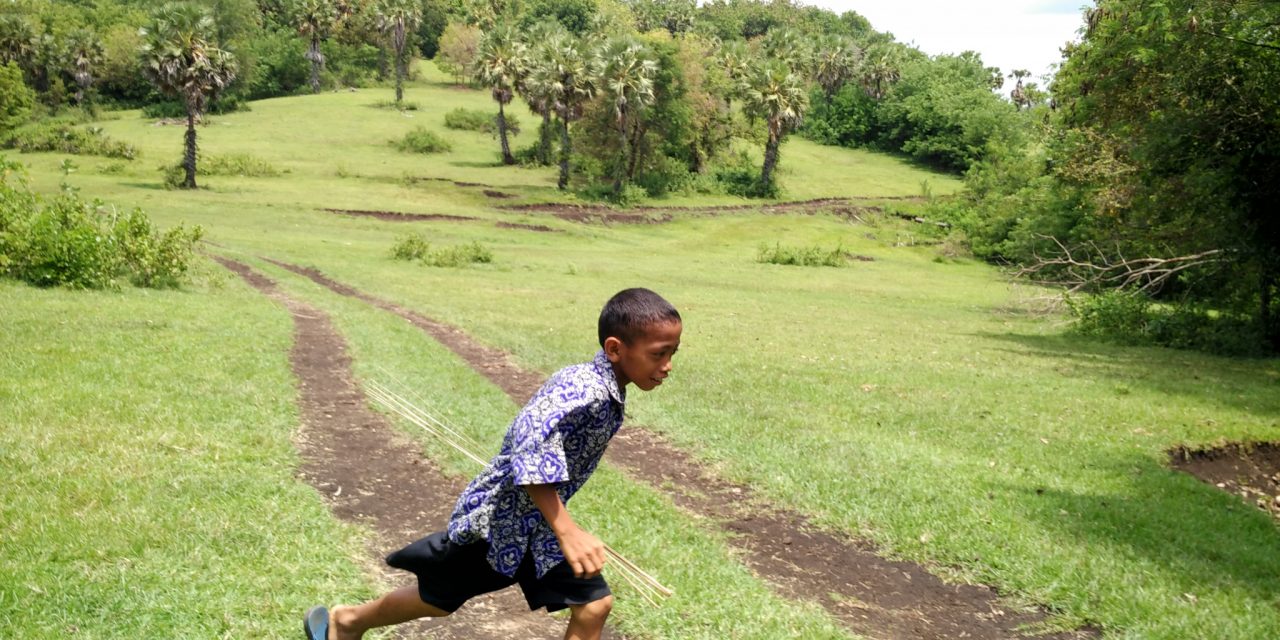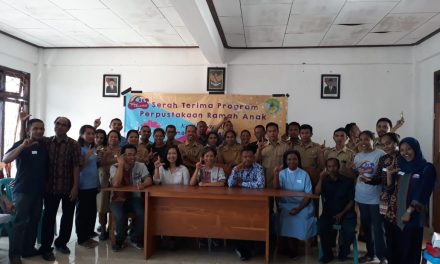It was one afternoon at Komodo Kampong pier at Komodo Island when I finished conducting a workshop at SDN Pulau Komodo to establish a child-friendly Rainbow Reading Gardens library. I had a talk with a sixth grader who, also, just finished his afternoon ritual during high tides: swimming.

Raised in an area located far from the sea, I was jealous of his bravery and skills in swimming. I asked him a silly question, “Since when are you able to swim?”
He seemed to think hard. I believed seeing my curious expression, he answered bluntly, “I am not sure. Maybe since I was three years old.”
I compared myself to him, “Well, I started swimming when I was in Junior High School.”
He laughed.
I reacted, “My home is far from the sea.”
He was shocked when I told him that I need to travel for 3 hours to get to the beach.

On the other day, when talking about O2SN (National Sports Olympic for Students) at the sub-district level, I heard teachers in Komodo Island casually stated that the representatives from their school were likely to lose in athletic sports. Why? To put it simply, they believed students living in hills area will dominate this particular sports.
Their vision was not merely because they looked down on the children’s ability, yet that was simply the truth. Environment plays an essential role in shaping child’s ability, I may say. How come?

Those living in small islands are capable of swimming. Almost everyday, they swim at the sea located behind their home.
Those living in hill areas have strong running skills. Even to get to school, they have to walk some kilometers every single day.
The arena to practice their skills, either in the water or on land, is available for free in front of them.

When the two groups compete to be the fastest in the water, who will (most likely) win? What about on land?
Later on, I was thinking that this might apply to books.
Those who have access to quality books will most likely have strong reading skills. Those who get used to books may not find difficulties in understanding the books. And those who read a lot, know a lot.

I was later asking to myself, how is it fair if I insisted on my having the same swimming skills as the boy in the pier does?
Is it fair if we demand every child to be well-educated while their supporting environments vary?
Is it fair if we demand every child to be a good reader while the access to quality books is not spread evenly?
Mahrita
![Taman Bacaan Pelangi [Rainbow Reading Gardens]](/wp-content/uploads/2016/07/logo_taman_bacaan_pelangi_rainbow_reading_gardens_bilingual_d.png)
